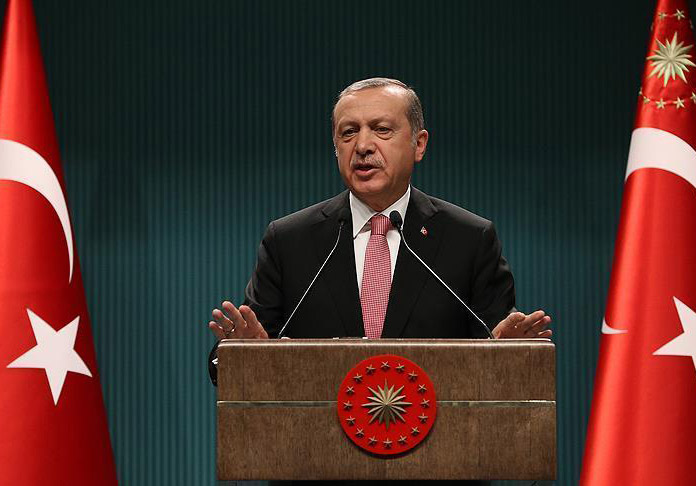
Apr 13, 2017 | News
The ICJ today warned that proposed amendments to Turkey’s Constitution to be voted on in the referendum of 16 April could irremediably compromise the independence of the judiciary.
The amendments would introduce significant changes to the institutional framework governing the Turkish judiciary, with far reaching consequences for the separation of powers.
The ICJ is concerned that the proposed constitutional amendments, if approved, would enshrine in Turkish Constitution measures that would be severely damaging the rule of law in Turkey for the long term.
The separation of powers and the independence of the judiciary are fundamental components of the rule of law.
Under the proposals, the President of the Republic would be empowered to appoint six out of thirteen members of the High Council of Judges and Prosecutors, including four ordinary members as well as the Minister of Justice, (who would act as President of the Council) and the Under-Secretary of the Ministry of Justice.
The remaining seven members would be appointed by the National Assembly.
None of the members of the Council would be appointed by judges or public prosecutors.
The High Council of Judges and Prosecutors is the institution entrusted with the appointment, transfer, promotion, discipline and dismissal of judges and public prosecutors in Turkey.
It is the role of such a Council to act as a guardian of judicial independence and to protect the judiciary from interference by the executive and legislative powers.
The proposed Constitutional amendments are clearly contrary to international standards on the independence of the judiciary, which affirm that at least half of the members of a judicial council should be judges elected by their peers.
The amendments, if passed in the forthcoming referendum, would be enacted in a context where judicial independence has already been severely compromised.
Under the State of Emergency in place since the attempted coup of July 2016, approximately one fifth of the judiciary has been arbitrarily dismissed, and thousands of prosecutors and lawyers have been detained.
As the ICJ has previously highlighted, such measures have had a devastating effect on the independence of the judiciary at every level, compromising the courts’ ability to provide fair trials or an effective remedy for violations of human rights.
The ICJ understands that Turkey faced a serious threat to its democratic institutions in connection with the attempted coup of 15 July 2016.
Nonetheless, it stresses that measures meant to meet this threat must be undertaken within the framework of the rule of law and the country’s human rights obligations.
The ICJ reiterates its call on the Turkish authorities to lift the State of Emergency and the derogations from its international human rights law obligations that it has made as a matter of high priority.
Contact:
Róisín Pillay, ICJ Europe Programme Director, t: +32 2 734 84 46 ; e: roisin.pillay(a)icj.org
Background
An ICJ briefing paper of June 2016, the Turkey: the Judicial System in Peril , raised concern at measures eroding the independence of the judiciary, prosecution, and legal profession in Turkey, with serious consequences for protection of human rights.
The Council of Europe Recommendation CM/Rec(2010)12 of the Committee of Ministers to member states on judges: independence, efficiency and responsibilities, states:
- Not less than half the members of [councils for the judiciary] should be judges chosen by their peers from all levels of the judiciary and with respect for pluralism inside the judiciary.
Under international human rights law Turkey may derogate from certain human rights during a justified state of emergency only to the extent that derogating measures are strictly necessary to meet a current threat to the life of the nation.
Certain human rights, including freedom from torture, the right to life, and certain essential elements of the right to liberty, the right to a fair trial and the right to an effective remedy may never be restricted, even in an emergency situation.
Further guidance on relevant international law and standards can be found in the ICJ Legal Commentary to the Geneva Declaration on Upholding the Rule of Law and the Role of Judges and Lawyers in Times of Crisis.
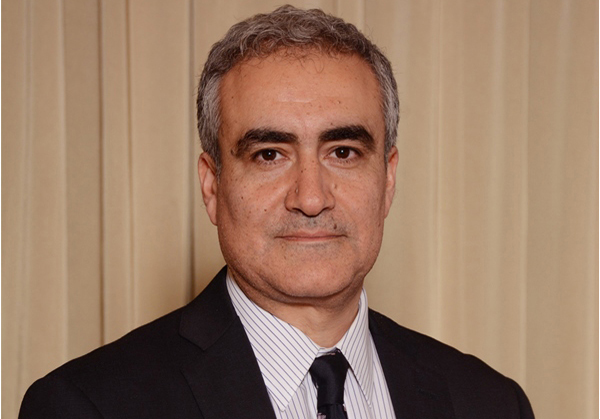
Apr 12, 2017 | News
Saman Zia-Zarifi is the new Secretary General of the ICJ. He replaces Wilder Tayler who retired in March, the Geneva-based organization announced today.
An Iranian-American lawyer, Zarifi joined the ICJ in 2012 as Regional Director for the Asia & Pacific Region based in Bangkok, Thailand. Prior to joining the ICJ, he served as Amnesty International’s director for Asia and the Pacific from 2008 to 2012, and before that worked at Human Rights Watch from 2000.
“Wilder Tayler masterfully guided the ICJ for the past 10 years and expanded its reach across the world in perilous times,” said Prof Robert Goldman, the ICJ’s Acting President.
“The Commission is fully confident that Sam Zarifi will build on this legacy by bringing to the ICJ as a whole the energy and vision he deployed so successfully in the Asia Pacific region.”
The ICJ, founded in Berlin in 1952, is one of world’s oldest human rights organizations.
Composed of 60 accomplished jurists from all regions of the world, the ICJ has for 65 years devoted itself to promoting the observance of the rule of law and the legal protection of human rights.
The ICJ Secretary General leads the implementation of the Commission’s objectives through the ICJ’s International Secretariat.
The International Secretariat operates in locations around the world including Guatemala, Zimbabwe, South Africa, Tunisia, Belgium, Switzerland, Lebanon, Pakistan, India, Nepal, Myanmar, and Thailand.
“There is an urgent need to stand up against the recent attacks on the concept of rule of law and the international human rights legal framework that the ICJ was instrumental in building,” said Zarifi.
“We will challenge human rights violations and work with lawyers, judges and human rights defenders around the world to bring perpetrators to account and ensure victims receive justice,” he added.
The ICJ currently works globally and in all regions to protect human rights, defend the rule of law and strengthen the independence and accountability of judges and lawyers.
“Around the world, authoritarian rulers and demagogues are cynically using fearmongering and discriminatory language to justify erosion of the rule of law and weaken an independent judiciary,” Zarifi said.
“An increasing number of powerful politicians around the world attack international law when it suits them as a means of gaining more authority and hurting the most vulnerable segments of society.”
“The international legal framework has failed to address some very serious human rights crises and it has allowed gross economic inequalities to develop, but the answer is to fix the system and improve it, not just destroy it and allow the most powerful to rule without any legal restrictions,” Zarifi added.
The ICJ has been instrumental in developing many of the key universal and regional human rights legal standards, ranging from treaties on torture and enforced disappearances, the right to remedy and reparation, and most recently, seeking accountability for abuses by business entities.
It has provided both conceptual depth and practical advance to questions such as the justiciability of economic, social and cultural rights; human rights in states of emergency and other crises; and the fight against impunity.
“The ICJ’s experience over the past six decades has clearly shown that countries that respect the rule of law and protect human rights benefit from greater security and more sustainable economic development,” Zarifi said.
“There is greater demand than ever for the ICJ’s factual, law-based analysis of human rights problems and most important, how to improve the situation.”
Sam Zarifi was born and raised in Tehran, Iran. He moved to the United States in 1983 and completed a BA from Cornell University in 1990 and a Juris Doctor from Cornell Law School in 1993, and after a stint as a corporate litigator in Los Angeles, an Ll.M. in Public International Law from New York University School of Law in 1997.
He was Senior Research Fellow at Erasmus University Rotterdam from 1997 to 2000, where he co-edited Liability of Multinational Corporations under International Law (Kluwer 2000) as well as several other publications on the subject.
Contact
Sam Zarifi, ICJ Secretary General, t: +41 22 979 3825, c: +41 79 726 44 15 ; e: sam.zarifi@icj.org
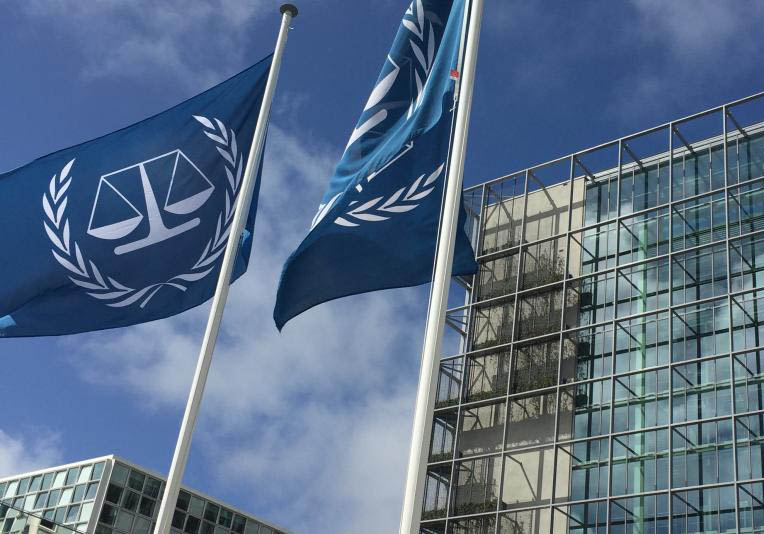
Apr 10, 2017 | News
Zambia should reaffirm its membership in the International Criminal Court to best advance justice for victims of atrocities, a group of African organizations and international nongovernmental organizations – including the ICJ – with a presence in Africa said today.
Zambia’s government began public consultations on the country’s ICC membership the week of March 27, 2017.
This was in response to the African Union summit’s adoption in January of an “ICC withdrawal strategy.”
An unprecedented 16 countries, including Zambia, entered reservations to this decision.
Zambia has been a role model on the continent in matters of peace, democracy, and human rights. Leaving the ICC would erode the country’s leadership and threaten respect for the rights of victims of the most brutal crimes across Africa, the group of organizations said.
As a member of the Southern Africa Development Community (SADC), Zambia has a proud history in the establishment of the ICC, they added.
SADC was active in the diplomatic conference in Rome in 1998 where the ICC’s treaty was finalized after six weeks of negotiations.
SADC members developed 10 principles for an effective, independent, and impartial court at a meeting in Pretoria in 1997.
The ICC is a groundbreaking achievement in the fight against impunity, the organizations said.
It is the first and only global criminal court that can prosecute individuals responsible for atrocities.
It is a court of last resort in that it has the authority to try genocide, war crimes, and crimes against humanity committed since 2002, but only when national courts are unable or unwilling to investigate and prosecute.
Since the court’s treaty opened for signature in 1998, 124 countries have become members.
Zambia signed the ICC’s Rome treaty on July 17, 1998, the day it opened for signature, and ratified the treaty on November 13, 2000.
The ICC faces many challenges in meeting the expectations of victims of mass atrocities and member countries, the organizations said.
Its inability to reach crimes committed in some powerful countries and their allies is a cause for deep concern, even as claims that the ICC is targeting Africa are not supported by the facts.
The court’s reach is limited to crimes committed on the territories of countries that have joined the court or offered the court authority on its territory, absent a referral by the United Nations Security Council.
The majority of ICC investigations in Africa have arisen in response to requests or grants of authority by governments in the countries where the crimes were committed – as in Central African Republic, Côte d’Ivoire, Democratic Republic of Congo, Mali, and Uganda – or through referrals by the UN Security Council – as in Darfur, Sudan and Libya.
The ICC has faced backlash from some African leaders since it issued arrest warrants for Sudanese President Omar al-Bashir for alleged genocide, war crimes, and crimes against humanity in Darfur in 2009 and 2010.
In 2016, evidence of the backlash reached new heights when South Africa, Burundi, and Gambia announced they would withdraw from the court, the first countries to take such action.
Gambia has rescinded its withdrawal and South Africa is also re-examining withdrawal, making Burundi the only country to have maintained its withdrawal.
Under the ICC Statute, withdrawal goes into effect one year after the state party submits a notification to the UN Secretary-General.
In the wake of the announced withdrawals, many African countries – including Botswana, Burkina Faso, Côte d’Ivoire, Democratic Republic of Congo, Ghana, Lesotho, Mali, Malawi, Nigeria, Senegal, Sierra Leone, Tanzania, and Tunisia – have affirmed their commitment to remain in the ICC and to work for any reform as ICC members.
The organizations encourage Zambia to reaffirm its support for the court, particularly in the absence of any functioning regional criminal court that can hold perpetrators to account.
The groups expressing support for Zambia’s continued ICC membership are:
Africa Legal Aid
Africa Centre for International Law and Accountability–Ghana
Centre for Accountability and Rule of Law–Sierra Leone
Centre for Democratic Development–Ghana
Centre for Human Rights and Rehabilitation (Malawi)
Civil Resource Development and Documentation Centre (Nigeria)
Coalition for the International Criminal Court
Fédération Internationale des Droits de l’Homme
Human Rights Watch
Institute for Security Studies
International Commission of Jurists
JEYAX Development and Training (South Africa)
Kenya Section of the International Commission of Jurists
Kenya Human Rights Commission
Nigerian Coalition for the ICC
Parliamentarians for Global Action
Southern African Centre for the Constructive Resolution of Disputes (Zambia)
Southern Africa Litigation Centre (South Africa)
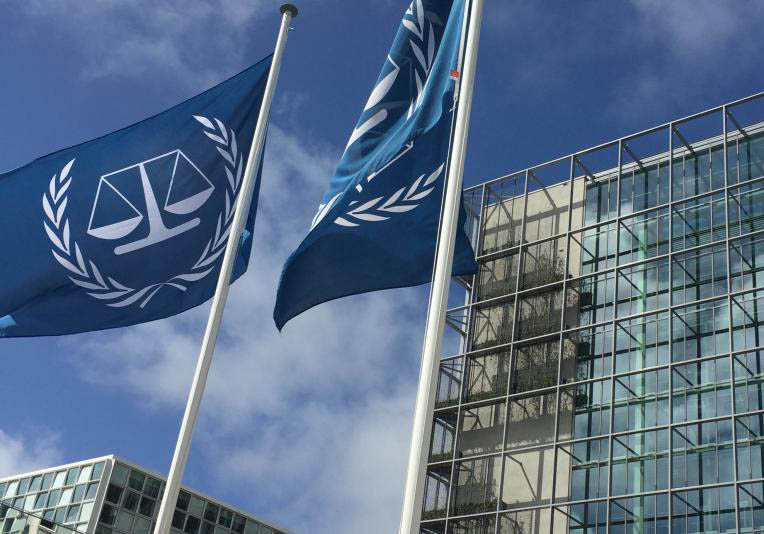
Apr 6, 2017 | News
South Africa is to appear before a scheduled hearing at the International Criminal Court on 7 April 2017 (ICC) in The Hague for a hearing on its failure to arrest Sudanese President Omar Hassan Ahmad al Bashir when he visited South Africa in June 2015.
The hearing, before the pre-trial Chamber of the ICC will consider whether South Africa was in breach of its obligations under the ICC Rome statute when it failed to effect the ICC arrest warrant on President Bashir.
The ICJ, represented by South African Justice Johann Kriegler, will be attendance observing the proceedings.
President Bashir has been indicted by the ICC on charges of genocide, war crimes and crimes against humanity in relation to atrocities committed from 2003 to 2008 in Darfur.
“The case is critical for ensuring the effectiveness of the ICC as an institution. The only means the ICC has of enforcing its orders is through the cooperation of States,” said Sam Zarifi the Secretary General of the ICJ.
“The failure to arrest President Bashir and the subsequent efforts to withdraw from the ICC Rome statute raise important questions about South Africa’s commitment to the fight against impunity in Africa and globally,” Zarifi added.
South Africa gave notice last October that it intended to leave the ICC, but this notice has been withdrawn, at least pending debate in Parliament.
The ICJ had filed a brief with the South African Parliament calling on South Africa to remain with the ICC Rome statute.
The brief was signed by retired South African Constitutional Court Justices Laurie Ackermann, Richard Goldstone, Johann Kriegler, Yvonne Mokgoro, Kate O’Regan and Zak Yacoob.
It was co-signed by Navi Pillay, former United Nations High Commissioner for Human Rights, former judge of the ICC and former President of the International Criminal Tribunal for Rwanda (ICTR) and Wilder Tayler, then Secretary General of the ICJ.
Justice Zak Yacoob remarked that “pursuit of justice and pursuit of peace are complementary and mutually reinforcing objectives that South Africa will best achieve by remaining party to the Rome Statute of the ICC. Its not an either or situation. Protecting heads of States from justice whatever they do compromises peace too much.”
Contact
Arnold Tsunga, ICJ Director for Africa, t +27716405926 ; e: arnold.tsunga(a)icj.org
Background
South Africa was among the first States to ratify the Rome Statute of the ICC. It signed the Rome Statute on the day it was adopted, 17 July 1998, and ratified it on 27 November, 2000.
Both during the negotiations preceding the Rome Conference that established the Court in 1998, and at the Conference itself, South Africa played a leading role.
However, the events of June 2015 surrounding the arrival of President Omar al Bashir of Sudan in South Africa appears to have engendered a shift in South Africa’s posture, leading many observers to call into question the country’s commitment to international justice.
The failure by South African authorities to arrest and surrender President al Bashir to the ICC, although he had been indicted by the ICC for war crimes, crimes against humanity and genocide, led to the Southern Africa Litigation Centre (SALC) taking the government to court to compel it to fulfill its obligations both under the Rome Statute and the Implementation of the International Criminal Court Act 27 of 2002 (Implementation Act).
On 19 October 2016, the Minister of International Relations and Co-operation gave notice of South Africa’s intention to withdraw from the Rome Statute.
The Portfolio Committee on Justice and Correctional Services put out a call for submissions to be made to the Parliamentary Portfolio Committee on Justice and Correctional Services on the Implementation of the Rome Statute of the International Criminal Court Act Repeal Bill [B23-2016] to be made by 8th March 2017.
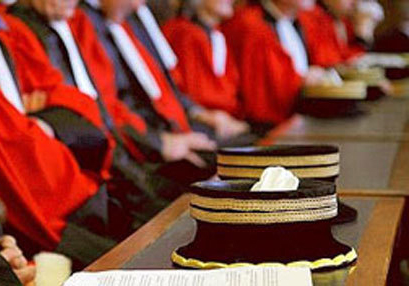
Mar 30, 2017 | News
The ICJ today called on the Tunisian President, Beji Caid Essebsi, to refrain from signing into law amendments to the law that regulates the country’s High Judicial Council (HJC). The amendments were adopted on Tuesday 28 March 2017 by the People’s Representatives Assembly.
The ICJ also urged the Head of the Cabinet, Youssef Chahed, to act, as a matter of highest priority, on the nominations by the Instance Provisoire de la Justice Judiciaire (IPJJ) with a view to filling the positions of the First President of the Cassation Court and its General Prosecutor.
The ICJ expressed concern that the amendments revising the country’s 2016 HJC law would weaken the effective functioning of the judiciary and the administration of justice in several respects
- The amendments would strip the IPJJ President of the authority to convene the HJC’s first meeting and instead provide the President of the Parliament with such power. This would constitute an inappropriate interference of the legislative branch into the management of the judiciary in clear violation of the principle of separation of powers and judicial independence.
- The amendments would explicitly exclude any possibility of challenge or judicial review of such action of the President of the Parliament. The ICJ considers that the judiciary must be able to review such decisions to ensure that they are not exercised arbitrarily or outside the law.
- The amendments would also reduce the quorum required for the validity of HJC meetings from one-half to one-third of its members. This could lead to situations where non-judicial members of the HJC have the power to take decisions over the judiciary, in contravention of international standards.
“Instead of using legislative tactics and procedures to weaken the independence and the effective functioning of the HJC, the Tunisian Head of Cabinet should act on the IPJJ’s nominations to fill the positions of the President and the Prosecutor General of the Cassation Court as a matter of urgency, and ensure that until the HJC is properly established, the IPJJ continues to fully exercise its competencies in overseeing and managing the judiciary,” said Said Benarbia, Director of the ICJ Middle-East and North Africa (MENA) Programme.
Indeed, irrespective of the amendments, the ICJ recalls that article 148(8) of the Constitution clearly states that the IPJJ is to carry out its mandate until the seats on the HJC have been filled. This is further affirmed under article 74 of the 2016 HJC Law and article 19 of the 2013 IPJJ Law. Both of these laws make the end of the exercise of the IPJJ’s functions dependent on two conditions, namely that the HJC be fully composed and established.
The ICJ considers that the delay in acting on the IPJJ nominations of senior judges risks undermining the effective functioning of the judiciary, as well as adversely affecting the functioning of other institutions that are essential to upholding the rule of law and protecting human rights in Tunisia. The adopted amendments are no answer to this problem.
“The ongoing crisis is political and not judicial,” Benarbia said.
“Solving it does not require the introduction of legislative amendments that erode the rule of law and judicial independence, but rather the compliance with existing laws and the Constitution,” he added.
Contact
Theo Boutruche, Legal Adviser of the ICJ Middle-East and North Africa Programme, t: +33 6 42837354, e: theo.boutruche(a)icj.org
Background
The amendments were introduced and adopted amid a continuing crisis and functional paralysis of the judiciary that also impact on the effective functioning of other State institutions, including the body in charge of reviewing the conformity of laws with the Constitution.
In particular, two key positions have been left vacant as neither the First President of the Cassation Court, nor its General Prosecutor, have been appointed, and both of these positions also serve as ex officio members of the HJC.
In October 2016, elections were organized to choose the members of the HJC. A swearing-in ceremony before the President of the Republic followed in 14 December 2016, in which not all the HJC Members participated.
In November 2016, the IPJJ proposed candidates including to fill these two positions. Under the Tunisian Law, the Head of the Cabinet must confirm these nominations.
Alternatively, this official may request new nominations from the IPJJ until agreement is reached, as provided for in article 12 and 14 of the IPJJ Law No.13 of 2013. So far, the Head of the Cabinet has failed to act on the IPJJ’s nominations and uncertainty prevails as to whether the HJC has been properly established.
Under the Tunisian Constitution and laws, the President of the Cassation Court is also the President of the Instance Provisoire de Contrôle de la Constitutionnalité des Projets de Loi, the body in charge of assessing the conformity of laws with the Constitution during the transition period.
When established, the HJC will be charged with appointing four members of the Constitutional Court.
Tunisia-Statement new HJC Law-News-Web stories-2017-ARA (full story in Arabic, PDF)

Mar 30, 2017 | News
The ICJ expressed its hope today that an arrangement reached between four judges of the High Court and Botswanan President Ian Khama along with Chief Justice Dibotelo would serve to restore the effective functioning of the High Court and its critical role in the administration of justice.
The settlement resulted in Justices Key Dingake, Modiri Letsididi, Ranier Busang and Mercy Garekwe withdrawing a petition and letter they had written complaining about what they considered to be a range of deficiencies in the justice system, as well as a failure of leadership in judicial administration.
The President and executive, for its part, discontinued pursing allegations of misconduct and bringing the name of the judiciary into disrepute against the judges and disestablished the impeachment tribunal that had been set up to try them.
The ICJ had previously expressed its concern about the process of the impeachment of the judges and the impact of the impeachment proceedings on judicial independence and impartiality in Botswana.
The ICJ was also concerned that impeachment proceedings would not accord with the principles of the right to fair trial.
“This settlement paves the way for the four judges to resume their normal duties,” said Arnold Tsunga Director of the ICJ.
“The Botswana executive and judicial officials charged with administration of the justice can now focus their attention on addressing the very real challenges facing the justice system in the country,” Tsunga added.
The ICJ reminds the Botswana authorities of their duty to guarantee the independence, impartiality and accountability of the judiciary under international law, including the International Covenant on Civil and Political Rights and the African Charter on Human and Peoples Rights, treaties to which Botswana is a party.
Contact
Arnold Tsunga, ICJ Regional Director for Africa, t: +27 716405926or +263 777 283 249; e: arnold.tsunga(a)icj.org
Background
The ICJ recalls that the four judges were suspended under section 97 of the Botswana Constitution on allegations of misconduct and bringing the name of the judiciary into disrepute.
The suspension was precipitated by a signed petition directed to the Chief Justice. In the petition the judges objected, among other things, to alleged poor conditions of service, as well as disparaging comments the Chief Justice was said have made about another judge’s ethnicity and defamatory statements related to corruption.
The petition also advocated for the Chief Justice’s impeachment and was copied to all judges of the High Court.
The Chief Justice and the President took issue with the contents and tone of the petition, alleging it to be disrespectful of the Chief Justice and causing disrepute of the judiciary in the eyes of members of the public.










